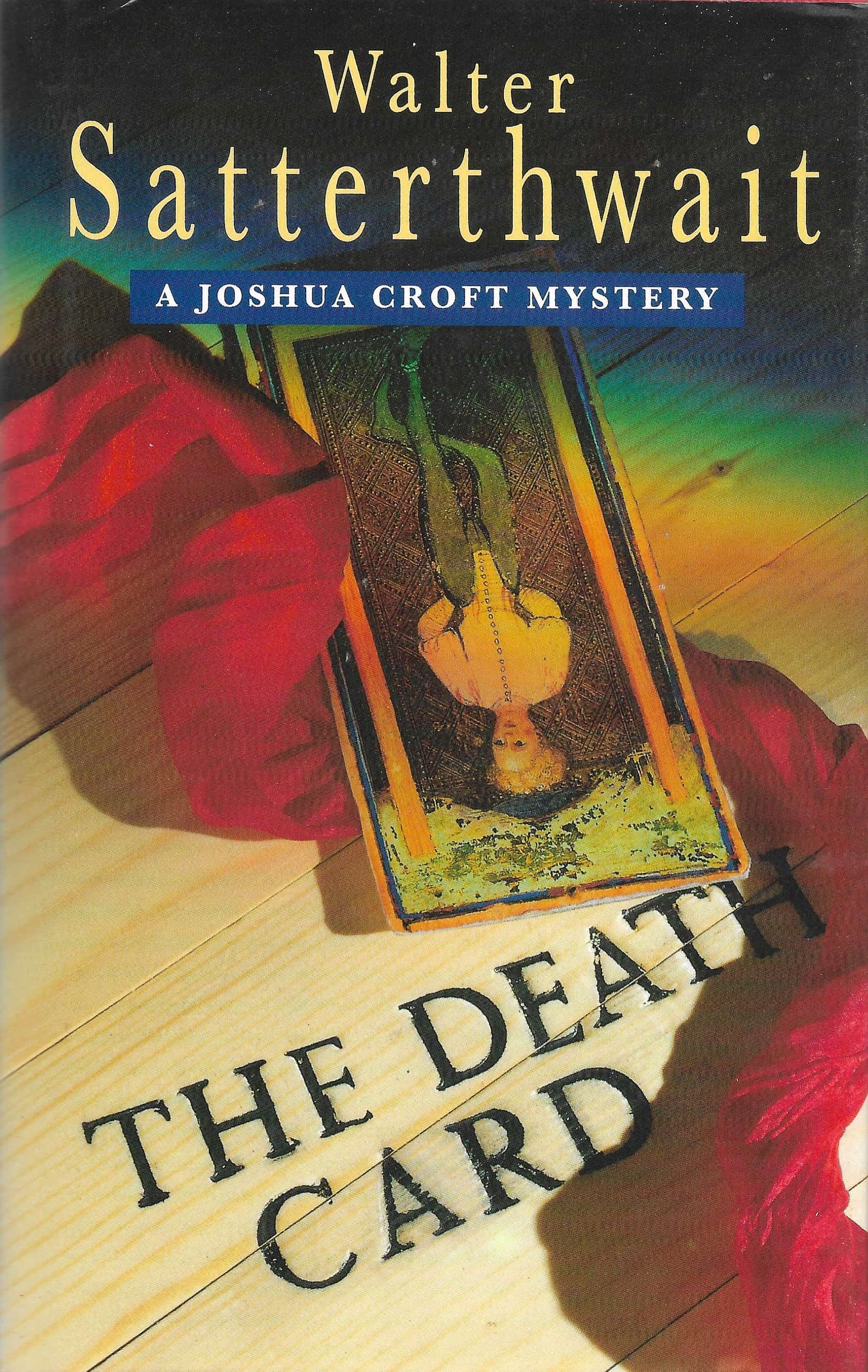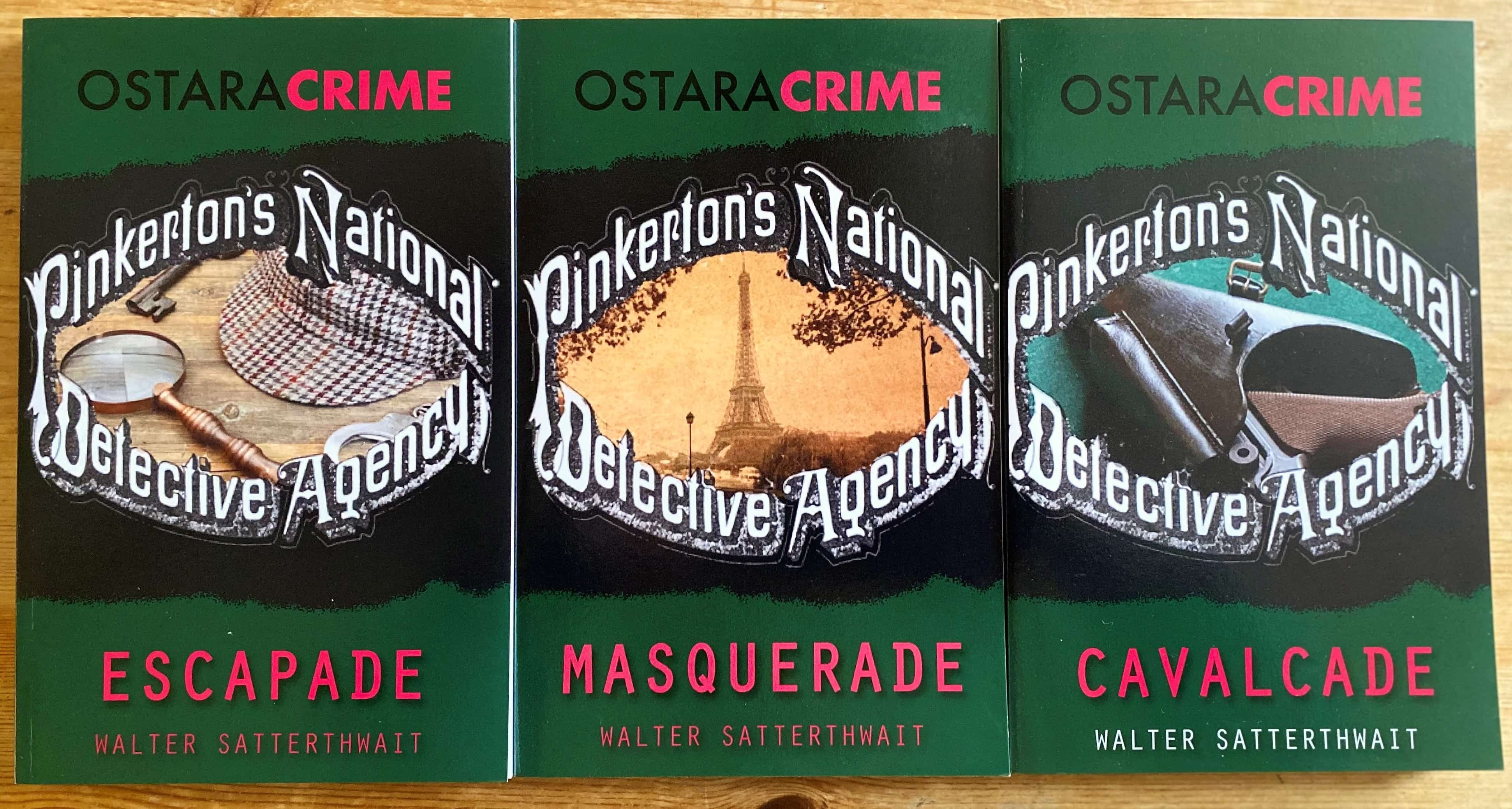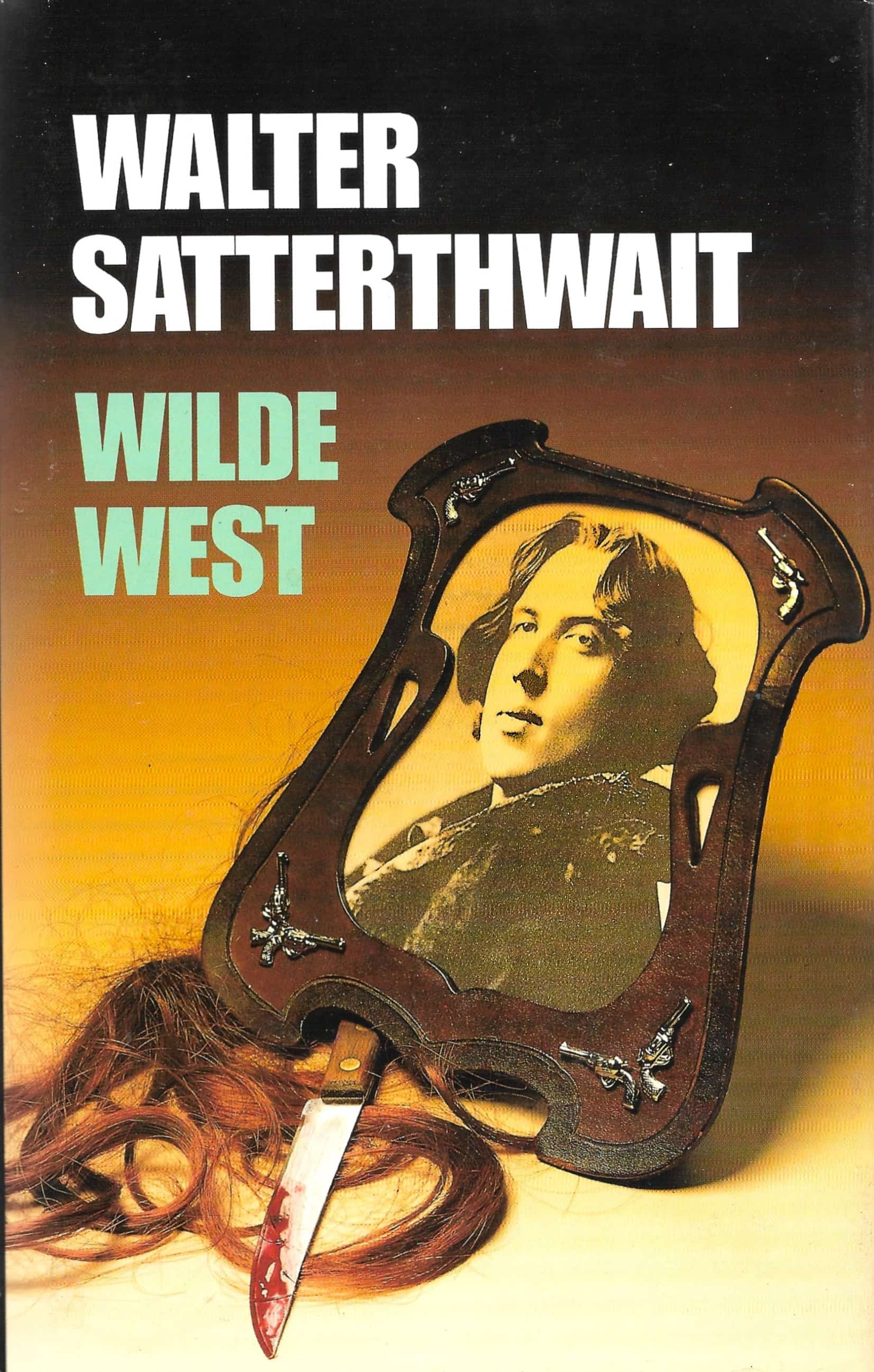An occasional series featuring authors and books which may have been unjustly forgotten, ignored or discarded.
His name may have conjured up the image of a nineteenth century northern brewer, but on first meeting this tall, long-haired, softly-spoken American, the common impression was probably: there’s a long, cool drink of water. Indeed, his nickname during his somewhat disjointed time in college was ‘Cool Walt’.
Walter Satterthwait (1946-2020) was born in Philadelphia; an American with a passport, who knew how to use it. Not only did his nomadic existence find him living in numerous locations in the US, particularly New York, Santa Fé, California and Florida, but in Greece, Kenya and the Caribbean, with frequent visits to Germany, France, Holland and England. Along the way he wrote numerous short stories, a series of classic private eye investigations, a historical series set in the Europe of the 1920s featuring cameos from Arthur Conan Doyle, Harry Houdini, Ernest Hemingway and Adolf Hitler (!), plus stand-alone thrillers and novels featuring Lizzie Borden and Oscar Wilde.
He financed his early writing by working as a bartender in New York and, clearly influenced by writers he admired of the hard-boiled school – Hammett, Chandler and Spillane – his first published novel was the 1980 paperback original (and now quite rare) Cocaine Blues, which featured a New York bartender involved in a huge drugs bust.
Yet Satterthwait was not content to stick to urban mean streets and soon extended his repertoire by retelling the legend of possibly America’s most famous axe-murderer (or not), Lizzie Borden, in Miss Lizzie. He was to renew his partnership with Lizzie Borden in his last novel in 2016, New York Nocturne, which has an elderly Miss Borden in the New York of 1927 acting as a mentor to a young female detective.
And when he did concentrate on what was to become his best-known series, the exploits of Santa Fé private eye Joshua Croft (and unofficial partner, the wonderful Rita), he did so with an intelligence and a gentle wit all too rare in that sub-genre. The last in that far-too-short series, The Death Card [known as The Hanged Man in the USA] appeared in 1994 and in Britain had the dubious distinction of being the last title published in the famous Collins Crime Club imprint.

In another take on the private detective novel, Satterthwait went back to the Roaring Twenties, and to a Europe he was increasingly fond of visiting, with the creation of ‘the Pinkerton Pair’ as they became known: Phil Beaumont and Jane Turner (professional and wannabe Pinkerton detectives respectively). Their first case, Escapade, sees them investigating a murder in a locked room in a country house in England in 1921. That week-end house guests also include Sir Arthur Conan Doyle and Harry Houdini confuses things quite deliciously and the novel won the prestigious Prix de Roman d’Aventures in France. Perhaps not surprisingly, the sequel saw the Pinkerton Pair in Paris in 1923 in Masquerade, tangling with, among others, Gertrude Stein, Erik Satie, a fantastically clumsy Ernest Hemingway, and an English detective novelist famous for ‘The Mysterious Affair at Pyles’ who has some unsavoury links with a new political movement in neighbouring Germany. And it is to Germany that our detectives travel for the third volume of the trilogy, Cavalcade, where the Pinkerton Detective Agency are given the impossible job of discovering who would want to try and assassinate the up-and-coming politician Adolf Hitler. (Along the way, Walter gets the chance to show his love of vintage motorcycles. Shades of Steve McQueen?)

Satterthwait’s penchant for blending real personalities into his fiction featured in both what many feel (including himself) was his best book, and also, possibly, his least successful, the 2006 novel Dead Horse, based on the lives of Raoul Whitfield and his wife Emily and named after their luxurious New Mexico ranch. In the 1920s and 30s, Whitfield was a prolific producer of pulp fiction and said, for a time, to be the highest paid mystery writer in America. A drinking buddy of Dashiell Hammett, he was lured to Hollywood to write screenplays but failed to make any significant impact and was then caught in the controversy surrounding his wife’s suicide at the Dead Horse ranch.
Litle known in the UK, Dead Horse enjoyed more success in its German edition (Satterthwait had a big following in Germany) and was reissued in America by Stark House in 2020.
He always said that his fascination with inserting real historical characters into his fiction stemmed from reading Josephine Tey’s The Daughter of Time, a book he greatly admired, and there is no doubt that he set himself his greatest challenge by writing dialogue for no less than Oscar Wilde in Wilde West. Oscar Wilde really did go on a lecture tour in America in 1882, but whether a serial killer targeting prostitutes followed him around, or whether a certain Doc Holliday came to his aid, is a matter of wonderfully entertaining conjecture. How the novel avoided the annual round of crime writing awards when published in the UK in 1992 is almost as big a mystery as why it has remained out of print for so long, although a Kindle edition was produced about ten years ago.

I first met Walter Satterthwait at a party for Collins Crime Club in the early 1990s where I was introduced to him as ‘a kindred spirit’ by our mutual editor, Elizabeth Walter. We hit it off immediately, left the party together and went out for dinner. It was the start of a beautiful friendship (with me as Claude Rains) which was soon extended to include fellow crime-writer Sarah Caudwell and the three of us would haunt various West End watering-holes whenever Walter was in London, which is to say when he wasn’t in Greece or Italy or New Mexico or on a Caribbean island which I insisted on calling Crab Key.
As all friends who have the disadvantage of being writers, we made a point of reading each other’s books and I cherish some of the personalised inscriptions penned by Walter, particularly that on a collection of his short stories which he sent me in 2008: To Mike – With best wishes, as always, and with memories I can even occasionally recall.
Well before the Twilight movies and the True Blood television series, we collaborated on a film script, from a storyline of Walter’s, about modern day vampires, who were urbane, sophisticated and, above all, cool. Nothing came of it of course and most of the bad jokes I put in were taken out by Walter, which is why on my copy of the script (the only one in existence), the dedication reads: To Walter Satterthwait, without whom it would have been much funnier.
The dedication I treasure most though is in a copy of the book in which Walterr himself takes centre-stage, a biography (of sorts) compiled early in his writing career by mystery aficionado Ernie Bulow. Sleight Of Hand was published in a limited edition of 400 copies by the University of New Mexico Press in Albuquerque in 1993.
Walter sent me copy #46, proudly signed by himself and Ernie Bulow, with the added inscription:
To Mike – This is bound to become extremely valuable. Very few copies were printed, fewer were distributed, and none were sold. Best wishes – Walter.
I have resisted the temptation to try and find just how valuable my copy might be as I have no intention of selling it.